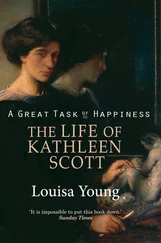It was only after the magazine and Bible study was complete that Eze accepted the dinner invitation. I imagine now that he must have been enthusiastic in his acceptance. Sometimes I imagine also that he must have had an impish smile on his face.
Well, he continued to come back, the little rascal. And Chinwe actually grew accustomed to him. Sometimes she even laughed at his jokes.
He was bright — had completed an engineering programme at the university. Civil engineering. This was why he did his evangelizing in the evenings, because during the day he worked in some division of Shell.
He had grown up a Jehovah’s Witness and saw no reason to change now. There was something to be said for routines, he told them. And something to be said for the fact that, just by virtue of the parents that God gave him, he had been automatically given access to this good news of God’s Kingdom, which, as he said, would lead to everlasting life.
One evening, Chinwe’s mother asked him what his plans were for the future. He chuckled nervously then said, ‘Marriage and a family.’ And then he added that he wanted the right woman, not just any woman.
‘What would make her the right woman?’ Chinwe’s mother asked.
‘Well, for one thing,’ he said, ‘she would have to be a Witness.’
‘A witness?’ she asked. ‘A witness to what?’
‘A Witness,’ he said, stretching the word out, for emphasis. ‘You know, a Jehovah’s Witness.’
‘Ah,’ her mama said, very thoughtfully. And she went on to tell a story about Chinwe. She told the story in great detail. It went something like this: when Chinwe’s papa was still living, and Chinwe was around three or four years old, Chinwe stumbled upon her mama’s old wedding gown in the old chest where her mama stored it. She became obsessed with the gown, and with the idea of marriage, and so, starting that day, she would beg her papa to play what she called a wedding game with her. The game would usually take place in the evenings, just after dinner, when the chirping of the crickets was the loudest and could be heard clearly inside the house. This last fact, Chinwe told me herself.
Sometimes, Chinwe tells me, she can still remember the smell of the gown: something clean and fragrant, like the scent of a freshly mopped floor. The mothballs were what caused it to smell that way. The camphor in them gave off that aroma, a mix between peppermint and cinnamon.
She’d breathe in the scent as her mama put the gown over her tiny body. I imagine it now: the way the sleeves must have extended far beyond Chinwe’s fingertips, so that her mama would have to roll them up for her. The neckline was certainly more like a shoulder line on Chinwe, because Chinwe has told me that it often fell past her shoulders and all the way to the floor, and that she’d tug and tug as the ceremony was taking place, just to try to keep the dress from falling once more to the ground.
The train was the only part of the dress that was just as she liked, sprawling — more than a little like it must have been back when it trailed behind her mama. Just perfect, Chinwe would say, back then. As if the length of the train had an impact on the success of the fantasy.
It was her mama who played the part of the minister, reciting the marriage speech. The step which you are about to take is the most important into which human beings can come… Do you take this girl to be your wedded wife, as long as you both shall live? I’ve heard the story and imagined it enough times now to be able to describe it as if it were my own experience: her papa would nod. He’d be on his knees, so that he was only slightly taller than Chinwe. He’d be wearing a black blazer, but underneath the blazer was just the white singlet that he always wore at night, and his blue-and-white-striped pyjama pants, which came with a matching top, but whose top they hardly ever saw him wear.
‘I do,’ he’d say to Chinwe’s mama.
Do you take this man to be your wedded husband, as long as you both shall live?
‘I do,’ Chinwe would say.
I now declare you husband and wife .
Her papa would lean towards her and plant a kiss on each side of her face. And then it would be time for Chinwe to go to bed.
That was the game they played, and her mama told Eze as much.
Then one evening, just before they were to play the game, Jehovah’s Witnesses came knocking on their door, and Chinwe’s papa was inviting them in, but she, Chinwe’s mother, scolded him, in front of them, for even thinking to invite them in. Did he know that they were a cult? she asked.
He politely withdrew his invitation and sent them away. It was the first time that Jehovah’s Witnesses had ever come to their door, and that was the treatment they received, thanks to her. So, she reasoned, perhaps this was that old story coming full circle. Perhaps this was God allowing her to make amends for that former discourtesy. And given that the discourtesy took place during one of the wedding-game nights, maybe all of that was a sign, a harbinger of things to come.
She smiled widely as she said all this, and Eze smiled with her.
Chinwe’s mother herself never did become a Witness. Instead she encouraged Chinwe to become one, so that Chinwe would indeed marry the nice young man who was obviously well-to-do, and who would obviously provide for her, who only wanted for himself a Witness wife. Was it too much to ask? No, said Chinwe’s mother, responding to her own question, earnestly shaking her head.
They did in fact marry, a year and a half after he first offered Chinwe and her mother the good news of God’s Kingdom. Chinwe was very dutiful about the wedding. On the surface her dutifulness must have looked like excitement. Perhaps it was.
It was a large celebration, held at the Kingdom Hall on Rumuola Road. His parents and family members attended, along with his Jehovah’s Witness friends, whom he also referred to as family — as ‘brothers’ and ‘sisters’.
Theirs was only a white wedding; no traditional one. Even the white wedding was relatively brief, and very sedate, a fact for which Chinwe might or might not have been grateful. It’s hard to know.
It was after their wedding that Chinwe’s mama encouraged them to live in Ehoro’s Estate. By this time, Chinwe had given up her teaching job ‘to take on more fully the role of a wife’, as her mama liked to explain it. Eze was the one who insisted on this to begin with (after all, they planned on having children soon and who would take care of the children if Chinwe kept up that job of hers?). Her mama had, of course, agreed.
In any case, her mama encouraged them to live in Ehoro’s Estate for two reasons. First, Elelenwo was not too far from D/Line. That is, it was far enough for Chinwe and Eze to feel separate, to feel independent from her, but it was close enough that she could hop on a bus and come visit whenever she wanted. (This ease of access would be a good thing when they decided to have a child, she said.) Secondly, she reasoned that Ehoro’s Estate was a swanky neighbourhood, just up Eze’s alley; and if they lived there, she could vicariously experience the good life through them.
It was true about the estate’s swankiness. Those days, the driveways and garages in Ehoro’s were filled with Volvos and Jeeps and BMWs. The yards were well manicured, and the families took turns hosting elegant dinner parties where people dressed in their finest traditional or European/American attire.
After they moved in, Eze got himself a Land Rover. But that must not have been enough, because he soon got himself a 505 SRS, which rivalled the BMW in many ways, or at least Eze said it did. Chinwe continued to drive her little yellow Volkswagen Beetle, which was just fine by her.
Читать дальше












